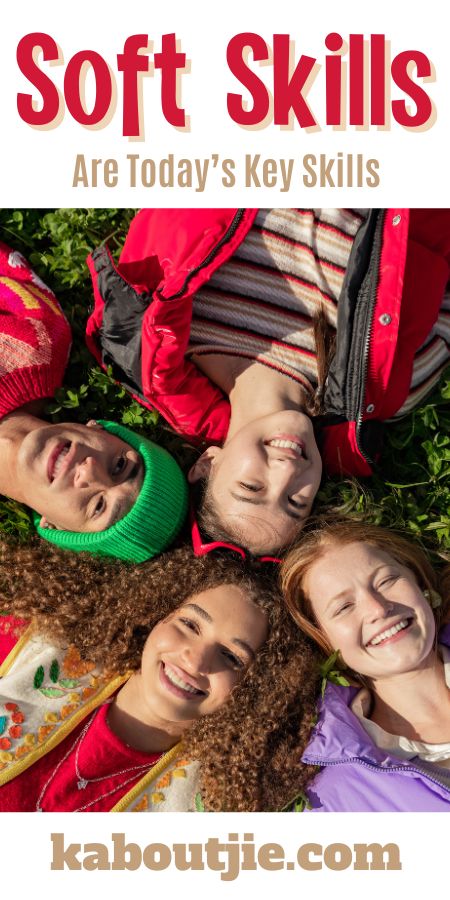With the world facing an uncertain future of work, there’s a question on many parents’ minds: “Is my child actually learning the skills they need for the 21st Century?” AI models are increasingly taking over a wide range of routine tasks and vast resources of facts and know-how are now available to us in a matter of seconds. This means that workplaces are shifting focus from looking for people with hard skills to those with ‘human’ skills.
Traditionally called ‘soft skills’ because during the industrial era they were considered nothing more than ‘nice to have’, these are now the key skills of our time. Principal of Koa Academy, Mark Anderson says, “The trouble is that our schools are still dominated by the teaching and learning of hard skills. While there’s widespread recognition of how important soft or key skills are, there are few intentional efforts to ensure kids build and develop them during their schooling years.”

So, What’s The Difference Between Hard And Key Skills?
Anderson says, “Hard skills are gained by learning a series of procedures, operations, or steps, as well as rules and information that enables you to solve a specific problem. An example would be learning how to do long division. You learn the steps and the conventions, and then you can divide one number into another. The thing about hard skills is that they are not transferrable from one problem to the next. Hard skills can only solve the problem they were designed to solve. For instance, you can learn the series of actions and the tools you will need to change a car tyre, and this skill will help you when you have a flat wheel. But you can’t use it to solve anything else.”
Key skills, which are also referred to as human skills and soft skills, are capabilities that are developed through reflection and feedback, experiences and practice. They include communication and leadership skills, collaboration and teamwork, creative and critical thinking, empathy and cultural competency. It’s naturally more complex to both develop and assess key skills. Anderson says, “These are powerful and dynamic skills, and the beauty of them is that unlike hard skills they are transferrable and can be applied in successfully solving a wide range of problems. This is why hiring managers are prioritising key skills in today’s workplaces.”
How Can Developing Key Skills Help Your Child?
According to the USA’s National Soft Skills Association, research from Harvard University, the Carnegie Foundation and Stanford Research all concluded that soft skills contribute a whopping 85% to career success. In other words, your child’s level of skills is hardly just ‘nice to have’; it’s a fundamental success factor in life. In a 2019 LinkedIn Talent Trends survey, 91% of employers ranked soft skills as their top requirement in the recruitment process.
Anderson says, “The challenge for schools is that key skills aren’t required by curriculum, and can’t necessarily be taught in a traditional classroom learning environment, and they can’t be assessed by a traditional test. Schools need new ways to build opportunities for kids to develop key skills – this comes through modelling, practising, feedback and reflection. For Koa, this is a priority of our online school experience. Our high-engagement environment, with 8 kids in a Pod working with a dedicated teacher, enables critical thinking and reflection every step of the way. Communication skills are developed through showcases and presentations, as well as ongoing conversations and interactions with peers, educators and the real-world experts we bring in to engage with our learners. Kids get experience in collaborating and working in teams within their Pods, and by developing their innovative projects for our annual science, business and creative expos. Self-mastery and time management are developed through being accountable to meeting your learning targets and participating in weekly scheduled events such as Masterclasses and Pod Connects. While progress in developing key skills may not feature on school reports, we do regular parent-child-teacher reviews, where the learner guides the meeting, reporting on their reflections about their schoolwork and learning and social experiences.”
What’s important is that schools are cognisant of the importance of key skills, and also intentional about giving children opportunities to develop them in the learning environment, rather than it be left to happenstance. Key skills can be integrated in the curriculum, and activities and assignments can be designed so that learners get to practice capabilities such as leadership, teamwork and communication. Schools can make use of the latest technology platforms, apps and interactive tools that teach communication, collaboration and problem-solving skills. They can also model key skills by creating and maintaining a positive school culture where respect and empathy are highly valued. This is what will set our agile and adaptable children on a path to career success, whatever the vagaries of the future work.
Discover Koa Academy, visit www.koacademy.com

About Koa Academy
Koa Academy is an IEB online school in South Africa for Grades 4-12 offering parents a future-focused option for their child’s education. Based on a vision and framework for School 2.0, Koa Academy provides high learner engagement in 8-person Pods with a dedicated teacher in a structured, yet individualised environment.
The academic program provides integrated learning across the South African curriculum through an innovative online platform. Learners access carefully curated, top global educational resources. They benefit from high levels of teacher time; ongoing, age-appropriate assessment and instant feedback through the learner dashboard.
Academic progress is mastery-based so that learners can proceed at their own pace. Social and emotional development is embedded in the Koa Academy schooling experience and is facilitated daily through the small class environment. Koa Academy focuses on learning that prepares children for real-life and the development of the skills and capabilities they need to succeed in the 21st Century.
 Kaboutjie SA Mommy Blogs by Lynne Huysamen
Kaboutjie SA Mommy Blogs by Lynne Huysamen




